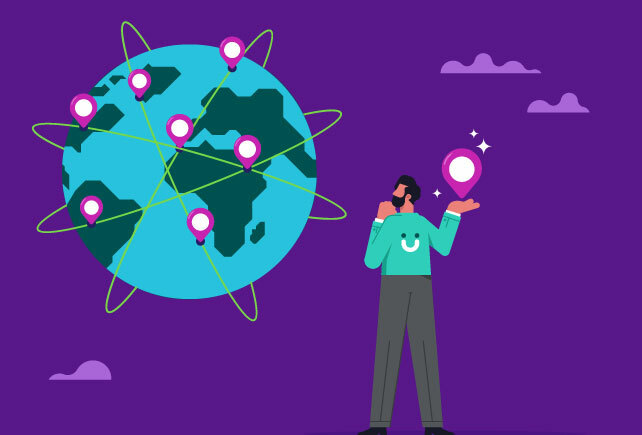Neurodiversity – What It Is and Why Employers Should Care

Carina Dolly
Consultant Manager, Immedis
UKG Inc., a leading provider of HR, payroll, and workforce management solutions announces entering into a definitive agreement to acquire Immedis. Read More

Consultant Manager, Immedis
Before I explore why the issue of neurodiversity is one Immedis takes a keen interest in, let’s first establish what we mean when we talk about neurodiversity.
Neurodiversity relates to the range of differences in individual brain function and behavioral traits, regarded as part of normal variation in the human population (used especially in the context of autistic spectrum disorders).
Many of us with children will know that schools are now more diverse than ever, and there are many students with different physical abilities in most classrooms. However, students who fall into the neurodiversity group, for example, those who have dyslexia, are on the autism spectrum, have attention deficit hyperactivity disorder(ADHD), attention deficit disorder (ADD), oppositional defiant disorder (ODD), or dyspraxia are a lot less identifiable.
Two of my three children are neurodiverse. My eldest son has many difficulties, including autism and intellectual disability, and will never participate in the working world. My daughter, however, is different. She is wickedly intelligent and has dyspraxia. Both excel in their education, albeit differently. However, in my daughter’s case, based on current recruitment practices and poorly informed hiring managers, her challenges could prevent her from landing her dream job. And it is that makes me a passionate advocate for neurodiversity, and why I believe that with a little understanding and some adjustments, we can make the workplace a more attractive and inviting environment for all.
For most of my career, my family remained separate from my work life. This was not intentional; just these two worlds never collided. That was until I was asked to join an interview panel for a graduate program at a large multinational company. Each interviewer was given a list of questions, a scoring mechanism, a small-time slot, and instructions on supporting a struggling candidate. The day was going smoothly, and about halfway through, I met a fantastic young man, who we’ll call Bob. Bob had just completed a masters in math and was on the autistic spectrum. He was an amazing candidate who was ideally suited to a role in engineering or testing. However, the questions we were given favored what I call “alphas,” candidates who speak 17 languages, fast-tracked their Ph.D., and love extreme sports. Definitely not Bob. After the interviews were completed, and we all gave our scores, I was the only one who pushed for Bob. However, because the scoring mechanism was biased towards the alphas, Bob did not score high enough to be considered for the job.
Selection processes often emphasize eye contact, small talk, and whether the candidate can establish an easy rapport, all of which lead to employers missing out on highly suitable and skilled autistic candidates. All too often, people look for skills that are not required or an integral part of the job, rather than looking at the work ethic or the relevant technical and perception skills.
Following on from this disappointing experience, I decided it was time to be proactive. I joined a company neurodiversity working group tasked with laying down the framework for a more inclusive recruitment policy and developing a communications strategy for existing staff who may not have disclosed their particular neuro challenge. We collaborated with external partners to create and promote the initiative.
From this work, our group the following changes were implemented.
As part of the ND working group, a customer contacted our CEO looking for work experience for his son David (not his real name), who is on the autism spectrum. His parents really wanted a taste of independence and a work placement for David. They had found it difficult to find a workplace that could accommodate his particular challenges outside of sheltered work placements. It fell to the group to try and find a solution. Even with the best intentions and colleagues who were also parents or siblings of persons with additional needs, it was still a very tough challenge. Like many businesses, work suitable for a candidate like David was either outsourced or delivered out of hours.
Eventually, we did find a position for David. Our office received a weekly order of fruit for the whole office, but no one ever checked it or worked out a way to share it. That was until David. Not only did he collect the fruit, but he also completed an inventory cross-checking the order versus what we received and sent a report to the admin team. He washed and prepared the fruit and delivered it to each of the offices with his business card and a note to inform them it was washed.
From the outside, this might look like a box-ticking exercise, but this responsibility was very appropriate and enjoyable for David. His parents gave feedback that he took great pride in saying that he was “going to work.”Dressing for the workplace and making his way independently to the office was a source of personal pride. He subsequently got a stock checking role in a nearby office due to this experience on his resume.
For many of my colleagues, making David part of our work community for 2 hours, a week demystified individuals with special needs. Tea breaks with David were a welcome break from the usual hubbub of the office, and David was as likely to ask the CEO to join as anyone else in the office, which always led to very interesting and ad hoc conversations.
I’ll leave the final thought for today as this from Carlene Jackson, Cloud 9 CEO and someone who has dyslexia:
“Firms just need to understand the value of having people that don’t think in a traditional way. We find the ability to focus and be loyal are strong autistic traits, while being creative and an out-of-the-box thinker is a dyslexic’s contribution. Why wouldn’t we want this in our business?”
Immedis Blog





